Reflections on the Synod
After the conclusion of the October Bishops’ Synod on the Family (October 4-25), reactions to the events and controversies associated with it and its final, 94-paragraph document, the relatio, largely fell, not unpredictably, along “conservative” and “progressive” lines. But in both camps there was considerable uncertainty. Many “progressives” seemed to feel they had “won” because the Church was publicly discussing difficult matters (like the admission of divorced and remarried people to Communion) in a more “merciful,” less “legalistic” way. But these same people also seemed to feel that they had “lost” because there was no consensus among the bishops on how to implement this “less-legalistic” mercy. On the other hand, many tradition-minded Catholics seemed to feel the Synod was a “loss” because these possibilities were so openly discussed, but still a “win” because, though the relatio was perceived as a bit “weak” on doctrine, it did not contain any outright heresy. The more “traditional” interpretations of the Synod’s results form a diverse medley of viewpoints and insights. They have one thing in common, springing from a single, perennial truth — a truth that can protect men and women from the power of tyrannical governments — that a marriage that has been made before God cannot be broken by man. Here we offer a selection of thoughtful viewpoints on the issues and outcome of the Synod on the Family.
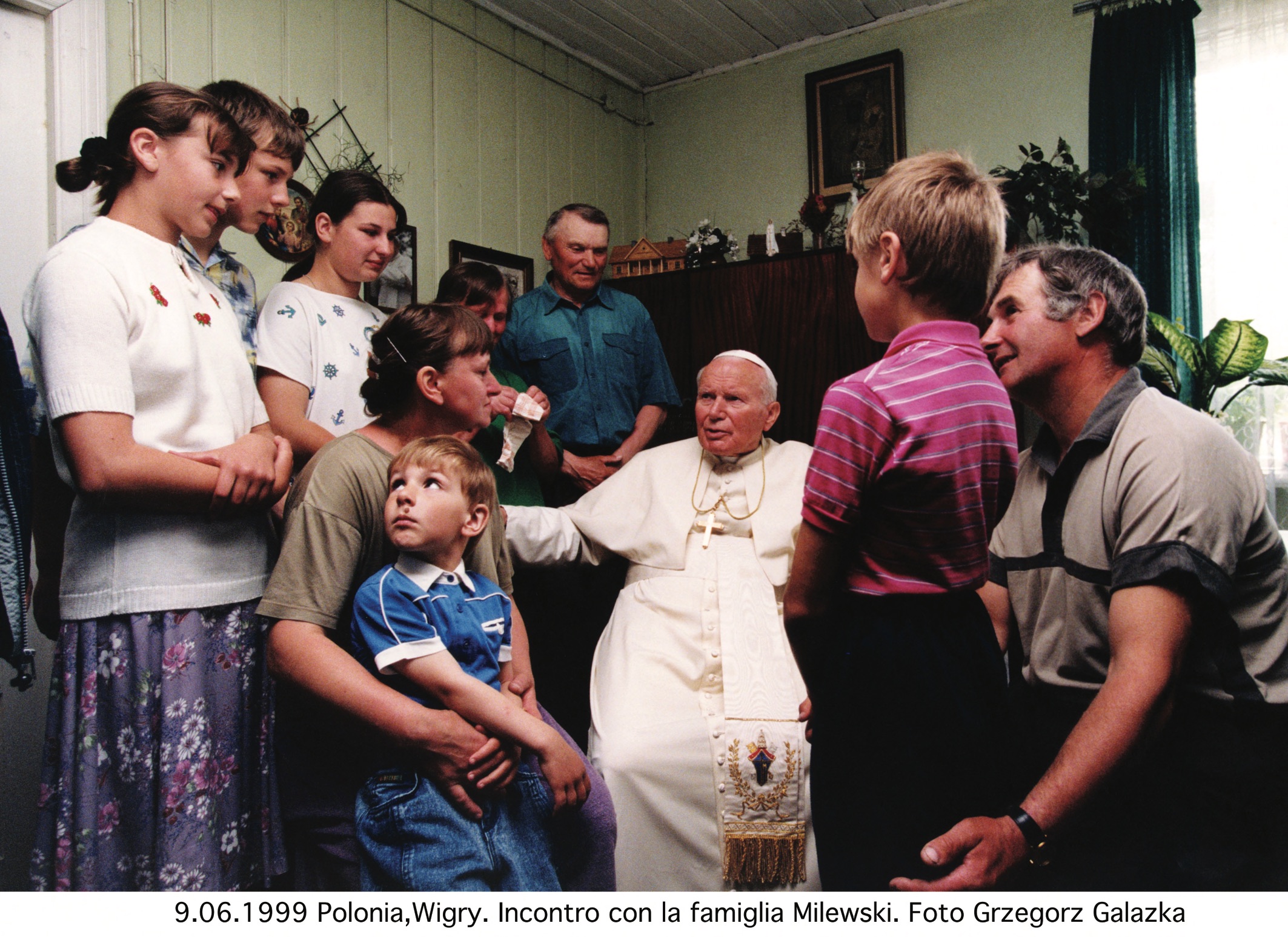
June 9, 1999. Wigry, Poland. Pope John Paul II meets the Milewski family.
“A Canadian author’s dark vision for our future if we do not defend the family”
The canonization of Pope St. John Paul II has generated renewed awareness of the phenomenal gift he was to our times, and will be to generations yet unborn. Much has been written about his role in moving the post-conciliar Church toward a proper integration of the Council documents, to his part in the demise of the Soviet empire, and to his numerous initiatives in launching the era of New Evangelization. In addition, his teaching on the “Theology of the Body” has become a cornerstone in our understanding of human sexuality in the divine plan for mankind. Not so well remembered, however, is the broader context of his teachings on marriage and family, despite the fact that no other pontificate before or since has given us so rich and continuous an outpouring on these topics.
In his 1981 encyclical on the role of the Christian family in the modern world, Familiaris Consortio, John Paul II pointed out that at this moment of history the family is the object of numerous forces that seek to destroy it or to deform it. In this and numerous other documents he emphatically taught that the very future of civilization depends on our defense of the rights of the family. He warns that whenever these are violated, even in the interests of rehabilitating a society in crisis, hostility against the family can evolve into overt acts of aggression; society “attacks it violently in its values and fundamental requirements. . . . For this reason the Church openly and strongly defends the rights of the family against the intolerable usurpations of society and the State.” (FC 46)
In his 1988 apostolic exhortation on the laity, Christifideles Laici, he wrote:
“The family is the basic cell of society. It is the cradle of life and love, the place in which the individual is born and grows. Therefore a primary concern is reserved for this community, especially in those times when human egoism, the anti-birth campaign, totalitarian politics, situations of poverty, material, cultural and moral misery, threaten to make these very springs dry up. Furthermore, ideologies and various systems . . . dare to take over the role in education proper to the family. . . The family can and must require from all, beginning with public authority, the respect for those rights which, in saving the family, will save society itself.” (40).
In his 1993 encyclical The Splendor of Truth, he further warned that despite the recent fall of totalitarian states—Marxism being the foremost of these—there is no less grave a danger that the fundamental rights of the human person will be denied and the religious yearnings which arise in the heart of every human being will be absorbed once again into politics.
“This is the risk of an alliance between democracy and ethical relativism, which would remove any sure moral reference point from political and social life, and on a deeper level make the acknowledgement of truth impossible. Indeed, ‘if there is no ultimate truth to guide and direct political activity, then ideas and convictions can easily be manipulated for reasons of power. As history demonstrates, a democracy without values easily turns into open or thinly disguised totalitarianism.’” (Centesimus Annus, 1991, 46, quoted in Veritatis Splendor, 101)
Usually, the word totalitarianism prompts mental images of gulags, secret police, and torture chambers. Twentieth-century literature gave us some prescient works of fiction that suggested a variety of possible totalitarian futures. Orwell’s 1984 and Huxley’s Brave New World immediately come to mind. Common to such dystopias is the absolutizing of the power of the State, or systems controlled by the State.
Totalitarianism in any form invariably strives to do away with genuine absolutes and to establish false absolutes in their place—usually sociopolitical and theoretical, such as dialectical materialism (Marxism) or the now all-pervasive form of materialism which Pope Benedict XVI called “the dictatorship of moral relativism.” By contrast, genuine absolutes are fundamental, ultimate, unqualified truths, independent of the ebb and flow of cultures, fashions, myths and prejudices. The most obvious example of authentic absolutes is the Ten Commandments, which stand as a bulwark and watchman against evil—against anything that would dehumanize us. They are also signposts in the midst of the endlessly shifting sands of opinion and subjective motivation.
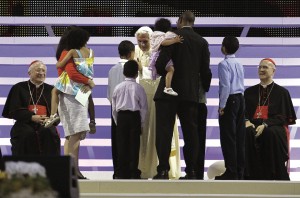
Pope Benedict XVI greets a family during the closing Mass for the World Meeting of Families at Milan’s Bresso Park, June 3, 2012. (CNS photo/Alessandro Garofalo, Reuters).
A tyrant, in the beginning, rarely looks like a monster. Like Lenin or the early Mao or early Hitler, he appears to be the savior of his people, though once he has attained power he eventually shows his hand, and sooner or later his people cast him off. More difficult to pin down and to throw off is the idealistic “humane” tyrant who expands his power in order to promote what he considers to be, according to his driving theory, the good of his subjects. We have seen this in the non-violent or “soft” totalitarianism that has swept over the once-Christian nations of the Western world, with its dismantling of pro-life, pro-family laws in many nations and the imposition of new laws that strike deeply into the moral autonomy of churches and individuals. Consider the U.N.’s carrot-and-stick anti-population efforts, alongside the European Parliament’s attempts to impose immoral laws on member states, the Obama administration’s attacks on religious freedom, and the widespread coupling of permissive abortion, euthanasia, and same-sex “marriage” laws with new “hate-crime” laws that punish any visible dissent from the revolutionary agenda. Consider the startling fact that bishops in democratic Canada, Spain, France, and elsewhere have been hauled before “human rights tribunals” and criminal courts for simply teaching the truth on these matters.
The new totalitarians have been able to go this far because their efforts to reshape moral values have been done without unleashing the grosser manifestations of violent persecution. Instead, they pursue their aims by a relentless, supposedly principled social revolution that rides on unceasing propaganda and manipulation, presenting the illusion of freedom, unity, and diversity even as it erodes all three. Most odiously, the deconstruction of the moral foundations of civilization is promulgated as a moral crusade.
Of course, the idealist tyrant will find that basic human nature is rather difficult to remold, and as time goes on he will need to continuously expand his power until his control approaches the level of totality. If he is clever at it and fills up the world with beautiful rhetoric, and takes care not to grossly infringe upon our pleasurable rights, and if, at the same time, he takes upon his own shoulders our unpleasant rights and duties, the ones which demand effort and sacrifice, then he may succeed for a time. This is never more possible than in a historical period of extreme stress. In such a climate the lifting of our responsibilities is not felt as deprivation; it feels, rather, like relief from intolerable tensions. When this happens on a massive scale there need be no jackboots, public book-burnings, and grotesque executions. In some cases there may even be no visible dictator, only a system or a social philosophy that permeates and controls everything. Indeed, the world may appear to be more or less normal. The Catholic philosopher Josef Pieper points out that this is the most dangerous form of totalitarianism of all, almost impossible to throw off, because it never appears to be what, in fact, it is. (Josef Pieper: An Anthology, Ignatius Press, San Francisco, 1989, p. 228.)
Both the monster tyrant and the “humanitarian” tyrant offer something that appears to be a good. Both, in the end, will exact a terrible price. In the beginning the payments may appear small and harmless enough. We are asked to compromise a little here, a little there, unsuspecting that eventually there will be no strength left to resist the betrayal of everything. All too easily the right discernment of a people can be neutralized when a tyrant assumes power without any of the usual sinister costumes of brutal dictators. When the errors come in pleasing disguises and are promoted by attractive opinion shapers, those living in such a milieu have more than one difficulty to overcome in properly assessing what is being done to them. They find themselves within unfolding events, and thus are faced with the problem of perception: how to see the hidden structure of their complex times, how to step outside of it and to view it objectively while remaining within it as a participant, as an agent for the good.

Reactions to attempts at a new totalitarianism: In Paris, May 26, 2013, people wave trademark pink, blue, and white flags during a protest march called “La Manif pour Tous” (Demonstration for All) against France’s legalization of same-sex marriage (CNS photo).
How are we Catholic people to do this if we are not grounded in the Truth? Will we be willing to compromise moral absolutes in the education of our children, for example, merely because articulate “experts” say we should? In my homeland, Canada, the government education systems are now imposing radically disordered sex-education and social engineering programs in all schools, including Catholic schools. Will the indoctrination and homogenization of our children’s minds become acceptable simply because we want the next generation to be nicely outfitted to cope in a profoundly disordered society? Will we be compelled to nod and smile as Marriage and Family are redefined into a virtually meaningless sociological construct?
What will it take for our people to understand that when humanist sentiments replace moral absolutes, it will not be long before the revolutionary idealists begin to invade families in the name of the family and to destroy human lives in the name of humanity? This is the idealist’s greatest temptation, the temptation by which nations and cultures so often fall. The wielder of power is deluded into thinking he can remold reality into a less unkind condition. If he succeeds in convincing a populace of the delusion and at the same time proposes a scapegoat as an enemy of the collective good, then unspeakable evils can be released in society. Those who share a mass-delusion rarely recognize it as such, and can pursue the most heinous acts in a spirit of self-righteousness. Democracies are not immune from such delusions, although they tend to forms of oppression that are not overtly violent in the beginning. As democracies further degenerate, however, covert oppression gradually develops into more blatant violations of liberty.
In his 1995 encyclical The Gospel of Life, John Paul II wrote:
“In this way democracy, contradicting its own principles, effectively moves towards a form of totalitarianism. The State is no longer the “common home” where all can live together on the basis of principles of fundamental equality, but is transformed into a tyrant State, which arrogates to itself the right to dispose of the life of the weakest and most defenseless members, from the unborn child to the elderly, in the name of a public interest which is really nothing but the interest of one part. . . . Really, what we have here is only the tragic caricature of legality; the democratic ideal, which is only truly such when it acknowledges and safeguards the dignity of every human person, is betrayed in its very foundations: How is it still possible to speak of the dignity of every human person when the killing of the weakest and most innocent is permitted? In the name of what justice is the most unjust of discriminations practiced: some individuals are held to be deserving of defense and others are denied that dignity? When this happens, the process leading to the breakdown of a genuinely human co-existence and the disintegration of the State itself has already begun.” (Evangelium Vitae, 20-21)
Our defense of reality itself, our resistance to various forms of totalitarianism, will demand both strong reactive measures and pro-active ones. At the foundation of any effective dissent, we must begin with our own examination of conscience, a restoration of reverence for the “whole truth about man,” a return to Gospel principles in all aspects of our lives, and, above all, a profound conversion to worship of God. In this way, by moving from a tragically stunted concept of the rights of man to the primacy of the rights of God and the responsibilities of man, we will live within the mainstream of grace under the mantle of divine authority, submitting completely to the mission of the Church, in statu missionis. Thus, by uniting ourselves to the obedience of Christ on the Cross, we will participate in the reversal of Adam’s sin and find the gateway to freedom, the dying which leads to life. And in doing so we will assist in the redemption of the world.
In an interview many years ago, John Paul II said, “I would a thousand times rather have a persecuted Church than a compromised Church.” He knew that the Church stands as the one defender of the entire range of human and divine absolutes. If we would remain free in the fullest sense of the word—free to be completely faithful to our divinely-appointed mission in the world, free to defend Love and Truth, free to defend the eternal dignity and value of all human beings—we must be ever willing to be a sign of contradiction, and, if necessary, to accept that society, which is increasingly ruled by an intrinsically perverse secular messianism, will condemn us (cf. The Catechism of the Catholic Church, 675-677).
Because “the future of mankind passes through the family,” the Church defends life and family with adamantine clarity. Like her Master, she is merciful, while at the same time showing us that there is no real mercy without truth—the truth which respects man enough to call him higher. She does not confuse genuine inculturation with assimilation by the spiritus mundi (and the darker adverse spirits at work within that spirit). Synods may come and go, alternatively edifying or inconclusive, but the Bride of Christ will remain, continuing in a state of ongoing preparation to meet her Bridegroom. We must never allow ourselves to be dismayed when confusion and ambiguity are manifested within her, either in the particular churches or in the seat of authority at its highest levels.
Will the Church go on to convert the world, or will she, as Pope Benedict XVI suggested, become much smaller, a remnant of believers purified by global persecution? Christ alone knows the answer. But of this we can be sure: despite the sufferings we will face in the future, the family will remain what it is––an oak flourishing in winter. The family will continue, as it always has, to make the seeds of the springtime that is coming after this present winter. When the tyrants and the propagandists and the social engineers have all gone, when the hatred and hopelessness have exhausted themselves, the earth will grieve and be born again. The Church and the Family will remain. Then, all who have sown in the midst of tribulations will reap a harvest in joy.

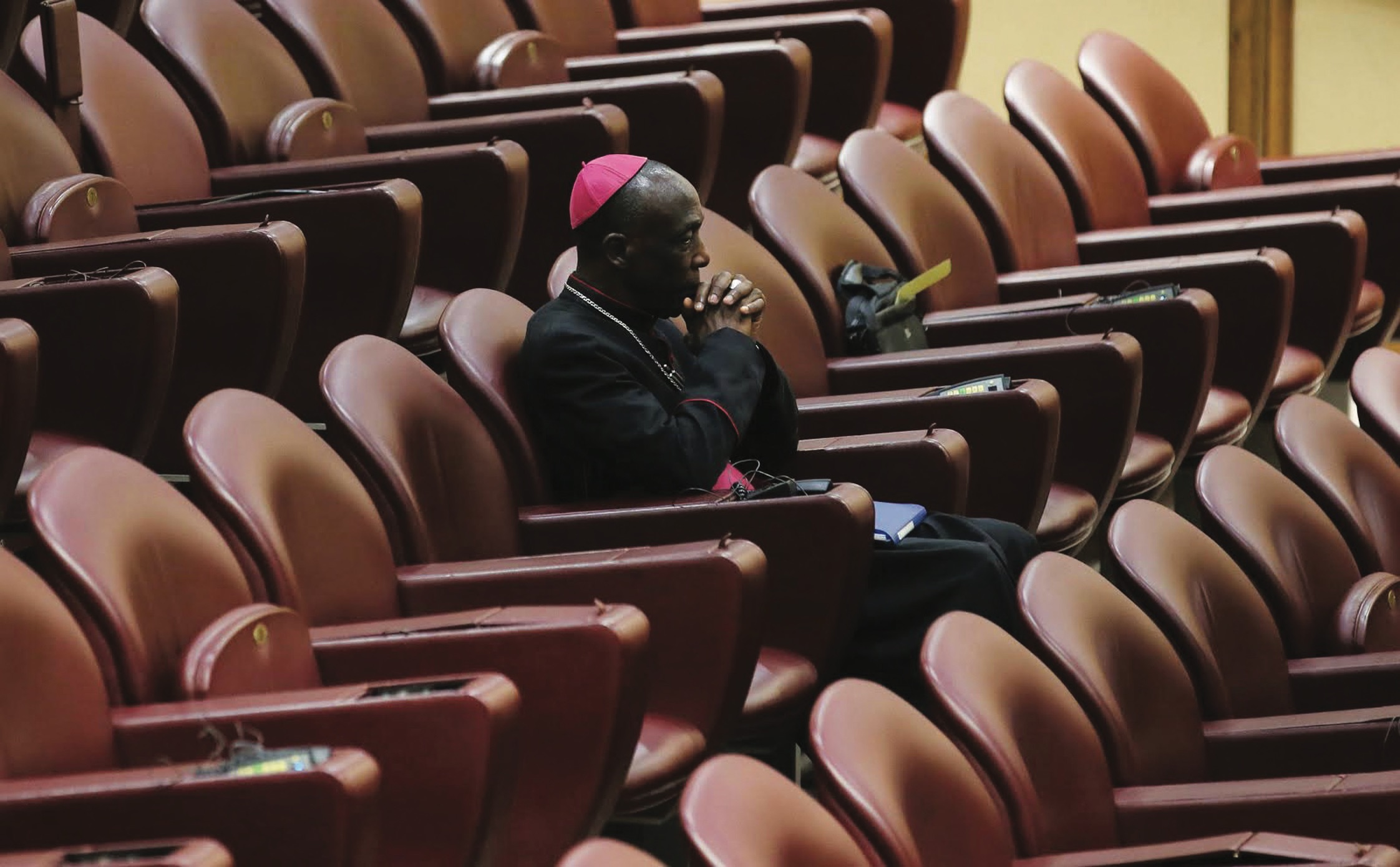
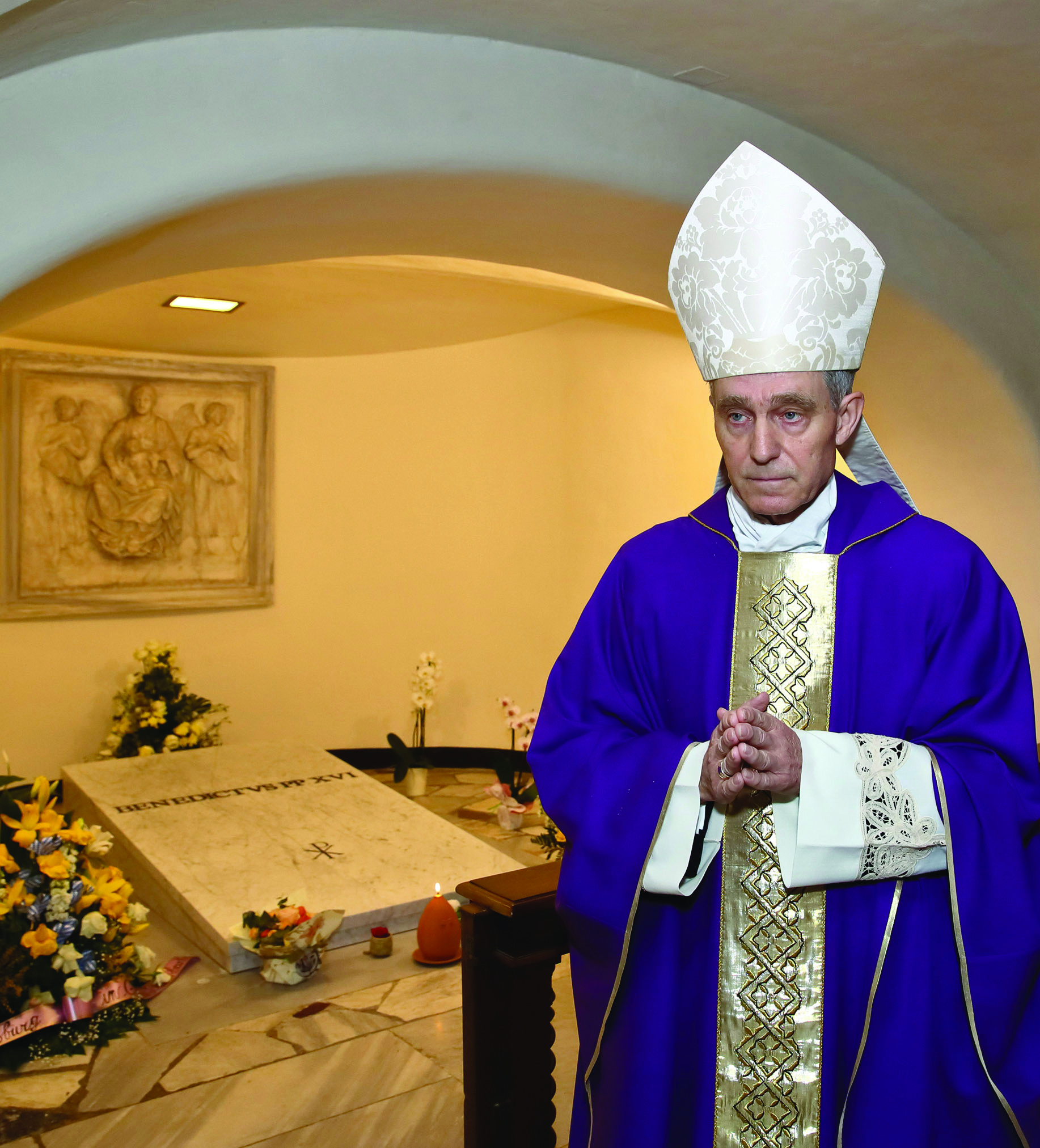
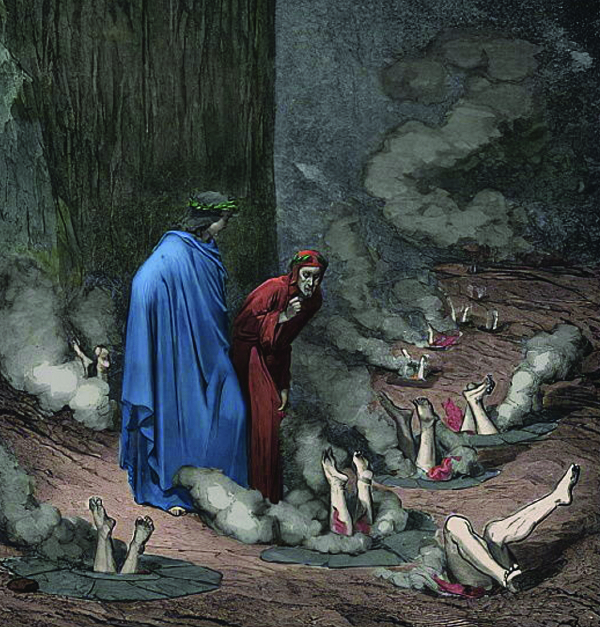

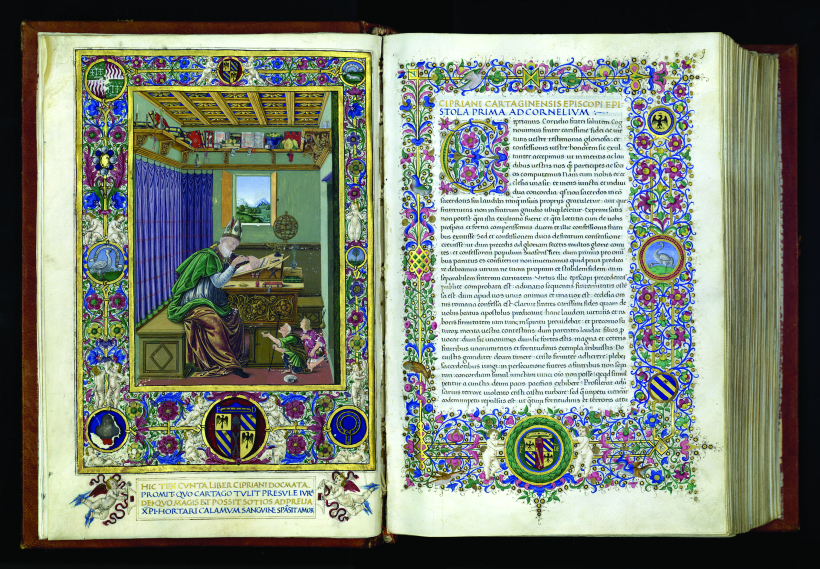
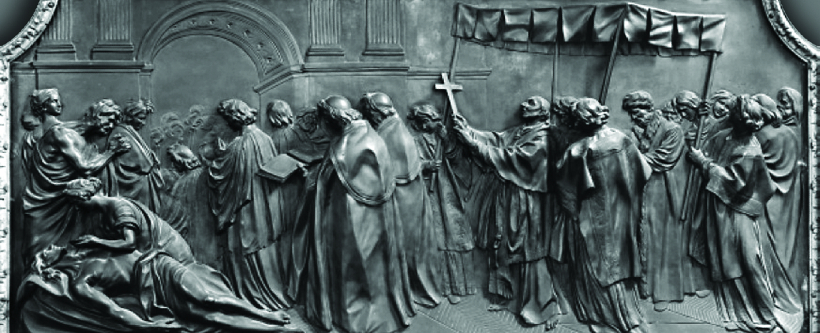
Facebook Comments